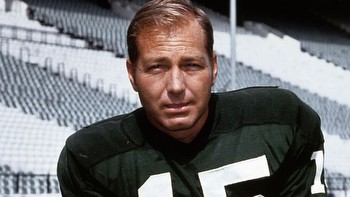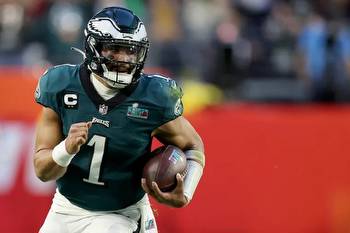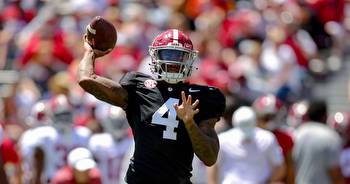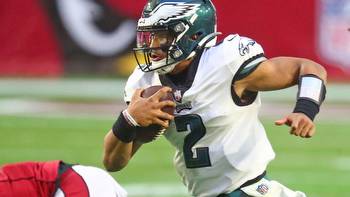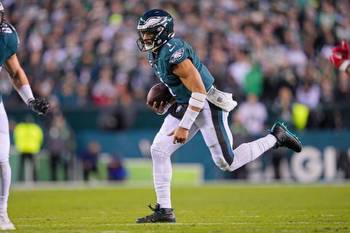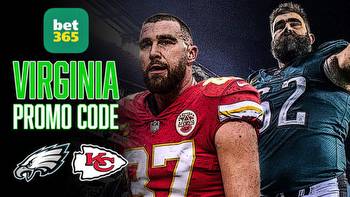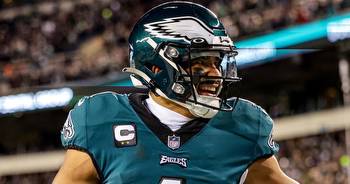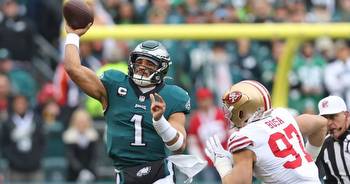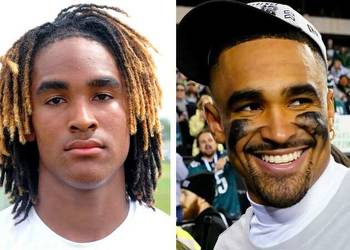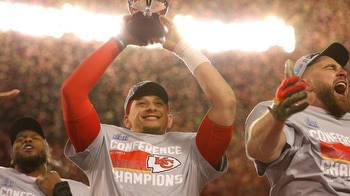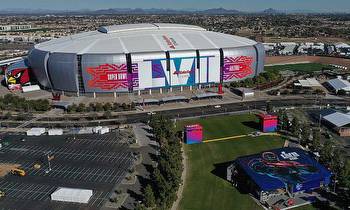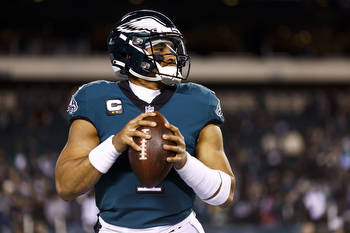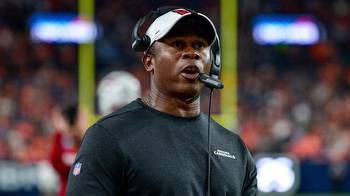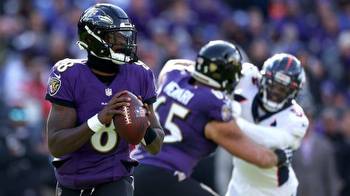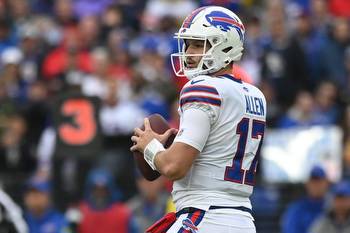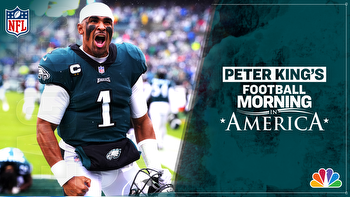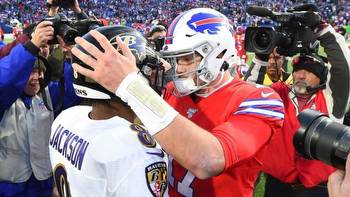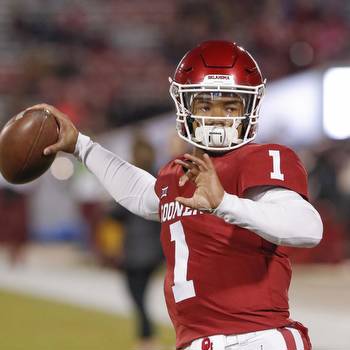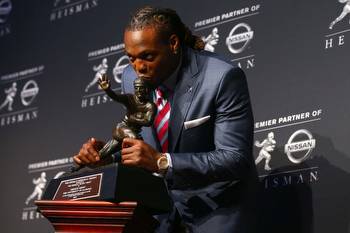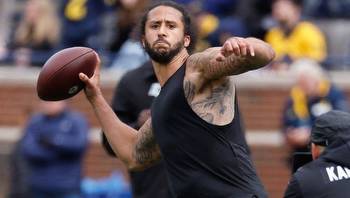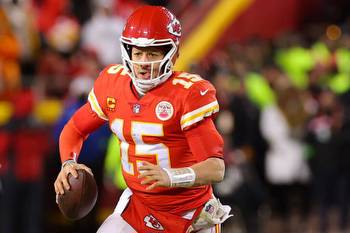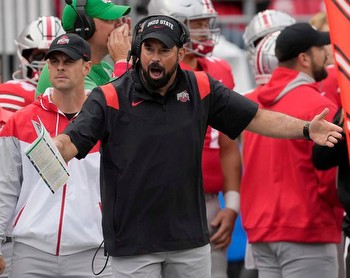Jalen Hurts’ run to the Super Bowl a significant time stamp for Black quarterbacks
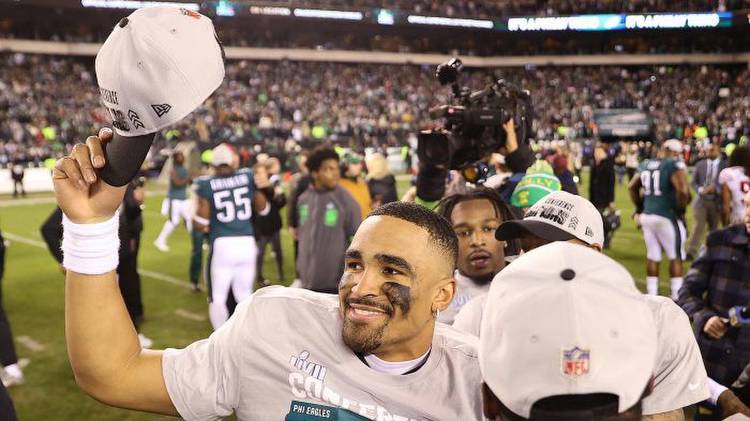
PHILADELPHIA — “You do not realize now what I am doing, but later you will understand.” John 13:7.
Jalen Hurts didn’t have to be heroic on Sunday. He only had to be solid. He passed with efficiency — 25 attempts, 15 completions, 121 yards, no interceptions. He ran when needed: 11 attempts, 39 yards, one touchdown.
For all of the talk of Hurts’ dynamism and his threat of running, all Hurts had to do on Sunday in the NFC Championship Game against San Francisco was turn in a solid performance. He did and Philadelphia is headed to the Super Bowl with 31-7 victory against the 49ers.
The criticism of the “dual threat,” “running,” “scrambling” quarterbacks is that they lacked the poise, the discipline, the skill, to be solid — to play from the so-called pocket, to do the unspectacular.
Hurts answered those critics on Sunday as he has answered them throughout the season. Perhaps he has answered them forever.
With Philadelphia’s victory over San Francisco and Kansas City’s victory over Cincinnati, next month’s championship game will mark the first time that two African American quarterbacks have met in the Super Bowl. This is a significant time stamp in the evolution of Black quarterbacks in the NFL.
What’s equally significant — and tied to the milestone of two Black quarterbacks facing off — is that Hurts will be the first run-pass option (RPO)-style quarterback since Cam Newton to reach the Super Bowl. In a copycat league like the NFL, Hurts’ ascent could escalate the flow of superathletic Black quarterbacks into the NFL.
In the past, these athletes — the Lamar Jacksons, the Jalen Hurtses — were routinely switched to wide receiver and defensive back. Those days may be over. Indeed, the great athlete will be sought out to play quarterback.
As Arizona Cardinals defensive coordinator Vance Joseph recently told me: “If you are an uber-athletic athlete and a good quarterback, no one wants to switch you. Because if you have one of those guys as your quarterback, it makes your team dangerous.”
Newton led the Carolina Panthers to Super Bowl 50 after the 2015 season. The first RPO quarterback to lead his team to a Super Bowl was Colin Kaepernick, who took the league by storm with his wide-open style of play during the 2012 season. Kaepernick and Newton did not win their respective Super Bowls, but their style of play marked the dawn of a new era of quarterbacking. Running, long resisted and derided, would become an integral part of NFL offenses.
Yet, there would not be another Super Bowl appearance for an RPO-style quarterback until now. Until Hurts.
After Sunday’s game, I asked Hurts how it felt, given everything he had accomplished in college, to lead the Eagles to the Super Bowl.
“I don’t really know how to feel, to be honest,” he said. “You work really hard to put yourself in this position and I’m forever grateful.”
Hurts then made a comment that would become a repeated theme throughout his brief postgame news conference.
“I know I’ve been through a lot personally,” he said. “… but I don’t want to steer away from the direction of how good this team has been at playing together, being together, and challenging one another.”
In another statement, Hurts referred to what he’d gone through in college, and in another one how he was a surprise — perhaps a disappointing — pick by Philadelphia.
“My first year here people probably didn’t even want me here,” he said. “It was probably one of those things. But it always handles itself.”
Like the Eagles, who won just four games during Hurts’ rookie season and were questioned for selecting him, the 24-year-old quarterback is driven by slights. They are kindred souls. “When we experience some painful times and some tough times, we always found a way to overcome,” said Hurts.
There are thousands of major moments in the rich history of African Americans in sports. There are the major moments we all know and there are thousands of smaller stories with the consistent theme of beating the odds. Hurts is part of that tradition: overcoming obstacles, persevering, being cast aside only to rise stronger and more fortified than ever.
His presence in the upcoming Super Bowl will illuminate a journey that began at halftime of his sophomore year at the University of Alabama. The story is familiar but one that cannot be told enough. It tells you who Hurts is and perfectly places him in the rich tradition of Black quarterbacks whose existence has been one of hurdling obstacles.
As a highly decorated freshman, Hurts led Alabama to the nation championship game. As a sophomore, Hurts led Alabama to the national championship game against Georgia. At halftime with Alabama trailing 13-0, coach Nick Saban made a change that would alter the trajectory of Hurts career. Rather than allow his star quarterback to dig his way out of a hole, Saban benched Hurts and replaced him with Tua Tagovailoa. Alabama came back and won.
Hurts has never spoken negatively about the benching or about Saban. He was asked about it again on Sunday, perhaps to contrast what may have been his lowest moment with this, his highest. Hurts said: “We have new moments. New moments and new times. I’ve been raised to be who I am. As the times change, the character doesn’t. I always try to never get too high, never get too low, and always give my best.”
Saban did not bench Hurts to make Hurts a better human being. He benched him to win a football game. Hurts decided to make the best of the situation. He cheered for Tagovailoa in that title game, and then as a junior backed up Tagovailoa. Hurts transferred to Oklahoma for his senior season and made himself into a better passer and eventually into a Heisman Trophy finalist.
There were more doubters about Hurts’ NFL potential. At the 2020 NFL combine, one reporter asked Hurts if he would consider changing positions. Hurts, ever the diplomat, said: “I’ve always been a team guy first, but I think I’m a quarterback. I think that’s that.”
That was the same question that followed Baltimore Ravens quarterback Lamar Jackson when he came out of Louisville, the same question that haunted scores of potential Black quarterbacks who never got an opportunity to play.
Hurts was drafted by the Eagles in the second round. It’s possible that had Jackson not had his phenomenal MVP season in 2019, Hurts may have been drafted lower. But Jackson illuminated the possibilities of how having a remarkable athlete at quarterback could be transformational. The Eagles took their chances and it’s paid off with a trip to the Super Bowl.
After Sunday’s game, reporters tried to get Hurts to gush about leading the Eagles to the Super Bowl, or to wax poetic about what it felt like to fulfill a childhood dream.
Hurts made it clear that he doesn’t dabble in dreams and reminiscing. He is into the here and now.
“I said early in the week that this is not a time for reflection. It’s really hard for me to do that,” Hurts said. “I try to enjoy the moment, but my joy comes in winning. I know the job isn’t done.”
Before the interview session ended, someone asked Hurts to clarify an earlier comment when he said some Philadelphians did not want him drafted.
“It was a big surprise to many,” he said of being drafted. “My favorite [Bible] verse — I went through a lot of stuff in college and it kind of stuck with me — John 13:7: ‘You may not know now but later you’ll understand.’ Hopefully, people understand.”
We understand a little better now.
In Hurts’ book, finishing the job does not mean only winning the Super Bowl or being voted MVP. The job is to have a career that puts all doubts and doubters to rest.
The historic Super Bowl showdown with Chiefs quarterback Patrick Mahomes is only the beginning.

